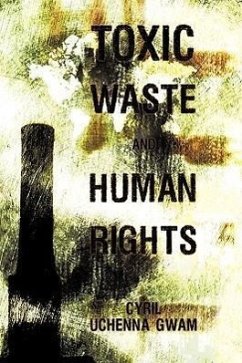This book discusses the adverse effects of the illicit movement and dumping of hazardous, toxic, and dangerous wastes and products in developing countries, and the effect of such activities on the enjoyment of human rights, more from the perspective of the resolutions of the former United Nations (UN) Commission on Human Rights (CHR). It is now called Human Rights Council. This study stands for the proposition that the illicit movement and dumping of toxic and dangerous wastes and products adversely affect the environment and human rights to life and health. It illustrates that dumpers are mainly transnational corporations. It demonstrates that, although the international community is aware of the effects of toxic wastes dumping on human rights, there exist certain factors militating against the full implementation of CHR resolutions on toxic wastes. These factors are: the politics of human rights, and the politics of first and second generation rights; the inequity of international legal instruments; the lack of will or commitment of certain states to comply with their international obligations; the attitude of the Office of the High Commissioner for Human Rights (OHCHR) towards the Special Rapporteur on Toxic Wastes; the status of international human rights laws; and the legal status of the CHR's resolutions. However, despite the difficulties in implementing the CHR's resolutions, the study supports the proposition that dumpers should be prosecuted for criminal activities in accordance with the state's domestic laws. Victims should be able to receive compensation for physical and emotional injuries, economic loss, and substantial impairment of their fundamental rights resulting from human rights violations. Specifically, developing countries should construct domestic legal system to protect such fundamental rights.
Hinweis: Dieser Artikel kann nur an eine deutsche Lieferadresse ausgeliefert werden.
Hinweis: Dieser Artikel kann nur an eine deutsche Lieferadresse ausgeliefert werden.








